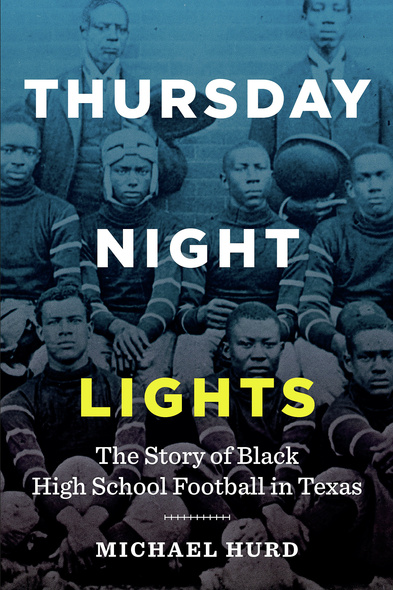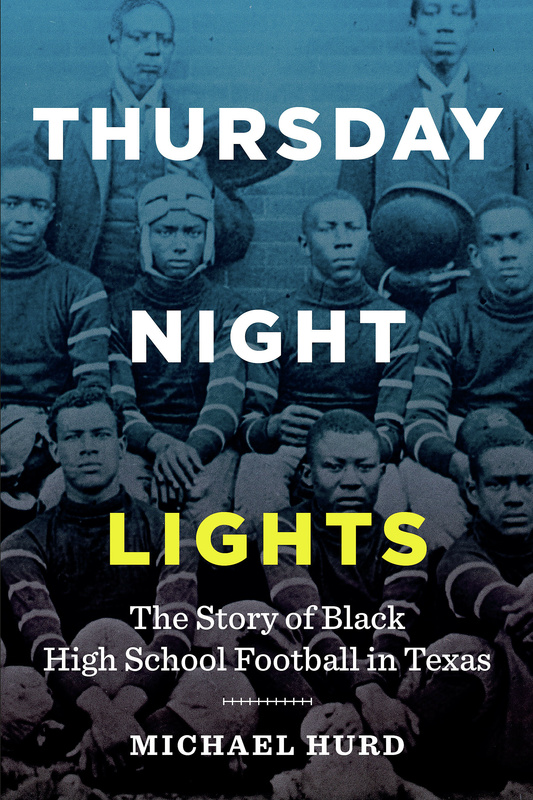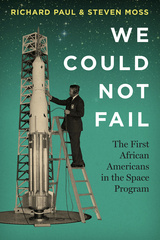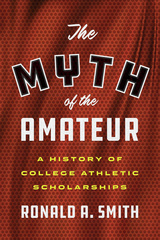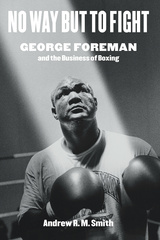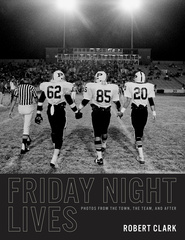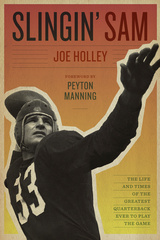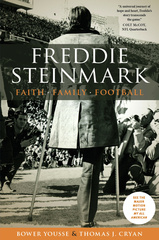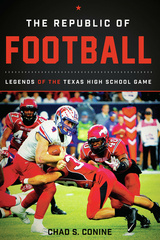Thursday Night Lights
The Story of Black High School Football in Texas
At a time when “Friday night lights” shone only on white high school football games, African American teams across Texas burned up the gridiron on Wednesday and Thursday nights. The segregated high schools in the Prairie View Interscholastic League (the African American counterpart of the University Interscholastic League, which excluded black schools from membership until 1967) created an exciting brand of football that produced hundreds of outstanding players, many of whom became college All-Americans, All-Pros, and Pro Football Hall of Famers, including NFL greats such as “Mean” Joe Green (Temple Dunbar), Otis Taylor (Houston Worthing), Dick “Night Train” Lane (Austin Anderson), Ken Houston (Lufkin Dunbar), and Bubba Smith (Beaumont Charlton-Pollard).
Thursday Night Lights tells the inspiring, largely unknown story of African American high school football in Texas. Drawing on interviews, newspaper stories, and memorabilia, Michael Hurd introduces the players, coaches, schools, and towns where African Americans built powerhouse football programs under the PVIL leadership. He covers fifty years (1920–1970) of high school football history, including championship seasons and legendary rivalries such as the annual Turkey Day Classic game between Houston schools Jack Yates and Phillis Wheatley, which drew standing-room-only crowds of up to 40,000, making it the largest prep sports event in postwar America. In telling this story, Hurd explains why the PVIL was necessary, traces its development, and shows how football offered a potent source of pride and ambition in the black community, helping black kids succeed both athletically and educationally in a racist society.
Hurd tells the PVIL story with conviction, attention to detail, and great affection.
[Hurd has] seen a lot. And he understands the connections between sports, especially football, and other, often riven cultural expressions of our state.
Though this book is long overdue, it is also right on time. We are currently having a collective cultural discussion about whose history gets told, how we choose whose stories matter, and which historical characters get cast, quite literally, in stone or metal to be celebrated for years to come. Hurd shows that the stories we tell ourselves about the history of football in Texas are woefully incomplete.
Thursday Night Lights clearly succeeds in reviving the memory of black high school football in Texas and honoring its legacy.
Hurd's work should prove essential to those interested in examining the racial politics of sports at the high school level, college recruitment, and desegregation.
In America's current Colin Kaepernick-inspired moment, with sports once again taking on a conspicuous role in debates about black citizenship and the persistence of white racism, this book is especially timely and important.
Hurd's book carefully proves how…football became a potent source of pride and ambition in the black community, helping black students succeed both athletically and educationally in a racist society.
[A] fascinating and beautifully-written homage to black high school football in Texas…a badly needed corrective to the history of high school football in Texas.
[A] groundbreaking book.
Through a skillful telling of the stories of legendary and lesser-known Black Texan high school football players and coaches, this book reveals how sport enabled African Americans to survive and even thrive during the era of Jim Crow segregation in Texas. It shows how the under-resourced black schools turned out not only All-Star and Hall of Fame caliber athletes but also exemplary citizens. Hurd’s accessible and entertaining writing style brings African American experiences under Jim Crow to life in a way that readers across the racial spectrum will profit from.
There’s a need for this book. These coaches and players, these schools and stories, have been overlooked—or discounted—in other accounts. Hurd ‘does right’ by providing them belated, much-deserved acknowledgment. Thursday Night Lights is a winner.
Michael Hurd is the director of Prairie View A&M University’s Texas Institute for the Preservation of History and Culture, which documents the history of African American Texans. He has worked as a sports writer for the Houston Post, the Austin American-Statesman, USA Today, and Yahoo Sports. Hurd’s previous books include Black College Football, 1892–1992: One Hundred Years of History, Education, and Pride. For more than a decade, he served as a member of the National Football Foundation’s Honors Court for Divisional Players, the group that chooses small college players for the College Football Hall of Fame, and he currently serves on the selection committee for the Black College Football Hall of Fame.
- Introduction
- 1. The PVIL: Emerging from the Shadows
- 2. Night Train, Choo-Choo, and Ridin' the Yella Dawg!
- 3. Learning and Teaching the Game
- 4. Gold in the Triangle
- 5. Yates versus Wheatley
- 6. Integration: The Good, the Bad, the End
- Acknowledgments
- Appendixes
- PVIL Football State Champions
- PVIL Milestones
- Select Bibliography
- Index

